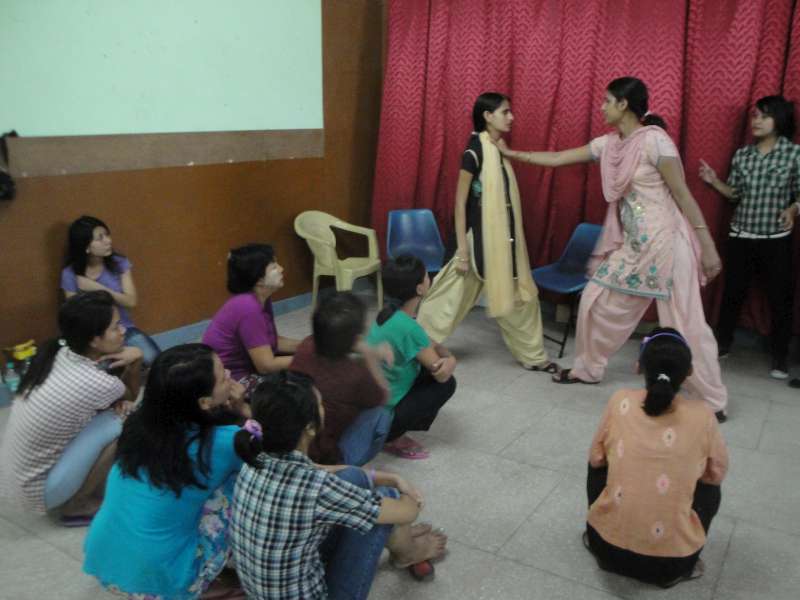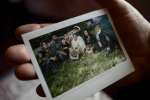New Delhi police teach refugee women how to take care of themselves
News Stories, 9 October 2012
NEW DELHI, India, October 9 (UNHCR) – From the shouts and cries emanating from the run-down building in a New Delhi suburb, it sounded as though someone was in big trouble. "Hyaaah!," several voices screamed, while others shouted: "Now attack."
Once through the door, in the offices of a refugee organization for Myanmar refugees, the anxious visitor was relieved to discover that it was only a group of 30 refugee women assaulting each other under the watchful eyes of Indian policewomen skilled in the arts of self defence.
The refugee women from Myanmar were taking part in a recent 10-day training programme organized by UNHCR and its implementing partner, the Socio-Legal Information Centre, and conducted by constables from New Delhi's Crime Against Women cell.
The course was aimed at giving them the basic skills to defend themselves in the Indian capital of New Delhi, which has the country's highest rate of crime against women, including sexual harassment and random attacks in public as well as rape. "I want to protect myself," said Sung, a 50-year-old widow, adding that "refugee women have been attacked."
She and her fellow trainees were enthusiastic, sometimes overly so. There seemed to be a suppressed anger among the women and every move was hard fought. But the skills learned in the classroom in western Delhi could one day help them stave off attack or even save their lives.
"They want to learn and they are learning well," one instructor, Sunitha, stressed, while noting that this was the first time the New Delhi police had taught self-defence classes to refugee women.
Aside from learning how to fend off attacks, the course participants were also given tips about places to avoid and areas where danger often lurked, including badly lit parks, urban areas off the beaten track and even night markets. Because vegetables are cheaper the later it gets, refugees often go late at night to make their purchases.
Iang, who lives alone, said the classes had helped her a lot. "If someone touches me at the night market, I can fight back. I feel more confident now." Niang, a mother of one whose husband is missing in Myanmar, also welcomed the classes, while revealing that she had once been molested. "We face a lot of problems in Delhi, but now if this happens again, I will be able to defend myself."
Her only complaint was that the training was too short: a month would have been better. Other students also had problems because the course was conducted in Hindi, although an interpreter was present. UNHCR encourages refugees to learn Hindi and organizes free language classes for refugee children and adults in different parts of the New Delhi.
UNHCR plans to organize similar courses for Somali and Afghan refugee women in the coming weeks. "After 10 days, their confidence will increase," said another trainer, Sharada.
By Nayana Bose in New Delhi, India
































